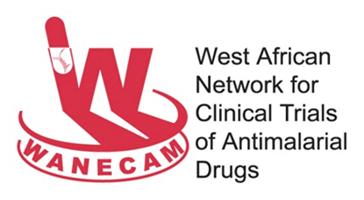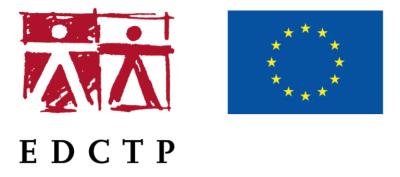
Collaborators
| Name | Role(s) within the Consortium | Institution | Country |
| Abdoulaye Djimdé | Project Coordinator, PhD/MSc Supervisor | University of Bamako, Molecular Epidemiology and Drug Resistance Unit & Malaria Research and Training Centre, DEAP, FMPOS | Bamako, Mali |
| Ogobara Doumbo | Collaborator | ||
| Issaka Sagara | Collaborator, IP Study Site & PhD student | ||
| Mahamadou Ali Thera | Collaborator | ||
| Alassane Dicko | Main responsible for Work Package 3 | ||
| Kassoum Kayentao | Collaborator | ||
| Oumou Niaré | Collaborator | ||
| Adama Dao | Collaborator | ||
| Aminatou Kone | PhD student | ||
| Mamadou Tekete | Doctoral student | ||
| Sirima B. Sodiomon | Main responsible for Work Package 2, IP Study Site & MSc Supervisor | Centre National de Recherche et de Formation sur le Paludisme (CNRFP) | Ouagadougou,Burkina Faso |
| Issaka Soulama | Collaborator & Study Site IP | ||
| Espérance Coulibaly | Collaborator | ||
| Jean-Baptiste Bibié Yaro | Collaborator | ||
| Issa Nébié | Collaborator | ||
| Alfred Tiono | Collaborator | ||
| Jean-Bosco Ouedraogo | Collaborator & Study Site IP | IRSS, Regional Directorate of the West | Bobo-Dioulasso, Burkina Faso |
| Issaka Zongo | Collaborator | ||
| Esperance Ouedraogo | Master’s student | ||
| Abdoul Habib Beavogui | Collaborator, IP Study Site & MSc Supervisor | Centre National de Formation et de Recherche en Santé Rurale (CNFRSR) de Mafèrinyah | Conakry, République de Guinée |
| Mamadou Malal Diallo | Collaborator | ||
| Alexandre Delamou | Collaborator | ||
| Moussa Sylla | Master’s student | ||
| Elizabeth Diawara | Master’s student | ||
| David Nwankma | Collaborator | ||
| Steffen Bormann | Collaborator & Thesis Director (PhD) | University of Heidelberg School of Medicine | Heidelberg, Allemagne |
| Stephane Picot | Collaborator | Université Claude Bernard Lyon 1 | Lyon, France |
| Jean Gaudart | PhD Supervisor | Universite Aix-Marseille, SESSTIM | Marseille, France |
| Anders Björkman | Main responsible for Work Package 4 & Thesis Supervisor (PhD) | Karolinska University Hospital | Stockholm, Suède |
| Jose Pedro Gill | Collaborator & Thesis Director (PhD) | ||
| Colin Sutherland | Collaborator | London School of Hygiene & Tropical Medicine (LSHTM) | Londres, Royaume-Uni |






